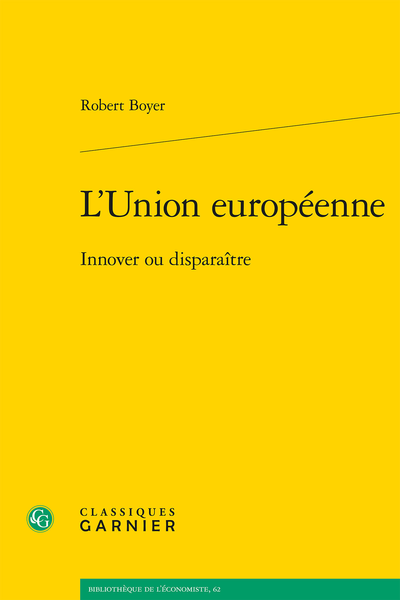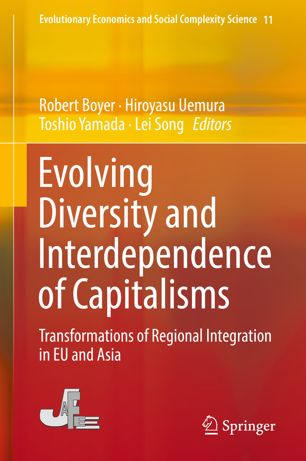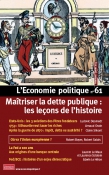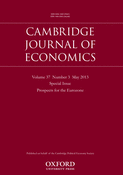Parution de l’ouvrage L’Union européenne : Innover ou disparaître, Editions Garnier, Paris, Collection Bibliothèque de l’économiste, n° 62, Série : 1, n° 40
|
|---|

Boyer Robert, Toshio Yamada, and Lei Song (Eds), Book, Part of the Evolutionary Economics and Social Complexity Science book series (EESCS, volume 11), Springer, Japan KK, part of Springer Nature 2018
Introduction
This book integrates three levels of political–economic analysis: first a comparative institutional analysis of the varieties of capitalism in both Europe and Asia, second a macroeconomic analysis of industrial structural change and economic dynamics of the national economies in Europe and Asia, and then an encompassing analysis of international production linkages and international financial instability which determine the long-term patterns of regional integration in Europe and Asia. The comparison of the European Union and ASEAN delivers some key conditions for a viable long-term regional economic integration to cope with contrasted capitalisms and growth regimes: either pragmatism in the choice of an exchange rate regime, or a form of fiscal federalism. The reader will also find a genuine analysis of the dynamism of the Chinese economy, a study on institutional changes and de-industrialization in Japan, and the increasing international production linkages among China, Japan, Korea, and ASEAN. It is shown how the enlargement of the European Union and the Euro triggered the diverging competitiveness and macroeconomic performances that led to the crisis of a six decades long economic and political process. This book is the result of long lasting Asian–European collaborative research. It is a milestone in the historical and comparative analysis along the régulation theory that aims at understanding the long-run transformations, renewed diversity and interdependence of capitalisms.
Le Monde, 4 septembre 2015, p. 6. (version complète)
in The Euro Crisis and European Political Economy: France, Germany and Central Europe, Ed. by Robert Boyer, Ivan T. Berend, and Kumiko Haba, Aoyama Gakuin University, Tokyo, 2013, p. 25-56.
 BOYERSASEbuildingEU27062013 (6.1 MiB)
BOYERSASEbuildingEU27062013 (6.1 MiB)
SASE Conférence « States in Crisis » Universita degli Studi di Milano, 27-29 June 2013
Networ B: Globalization and Socio-Economic Development , Thursday 27 June 2013
 BOYERovercomingEU27062013short (5.8 MiB)
BOYERovercomingEU27062013short (5.8 MiB)
Présentation Power point au « 20th International Conference of Europeanists » : Crisis and Contingency: States of (In)stability, Amsterdam, The Netherlands • June 25-27, 2013



